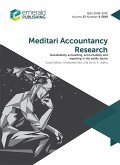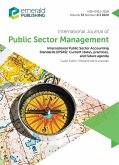Transforming Government: People, Process and PolicyThe value, risks and myths of public sector data analytics Technological advancements, especially in the past decade, have transformed how business, social and governmental activities are undertaken. The field of data analytics has taken off during this period, with it gaining popularity and attracting much interest from both practitioners and researchers. Despite receiving much attention across public and commercial domains, the academic focus on data analytics has largely been dominated by research into the business, rather than on public values which can be extracted through it. Recent events such, data-driven elections, data in political campaigns, and electorate profiling have all highlightedboth the potential, yet many unanswered questions of public sector data analytics. Amidst other factors, the Covid-19 pandemic has also drawn attention to the pivotal role of data analytics, data dissemination, and data sharing between public and private sector organisations and agencies for timely, adequate and comprehensive responses to the pandemic situation. During such unprecedented and disruptive times, where lines are continuously being blurred across sectors, policymakers require much-needed insights into how data may assist in overcoming the social and economic challenges presented by the current situation. As such, this special issue aimed at tackling some of these issues by gaining a greater understanding into the effective techniques, approaches and preconditions of applying data analytics in the public sector and by attempting to unravel the values, risks and myths concerning public sector data analytics.
Dieser Download kann aus rechtlichen Gründen nur mit Rechnungsadresse in A, B, BG, CY, CZ, D, DK, EW, E, FIN, F, GR, HR, H, IRL, I, LT, L, LR, M, NL, PL, P, R, S, SLO, SK ausgeliefert werden.









